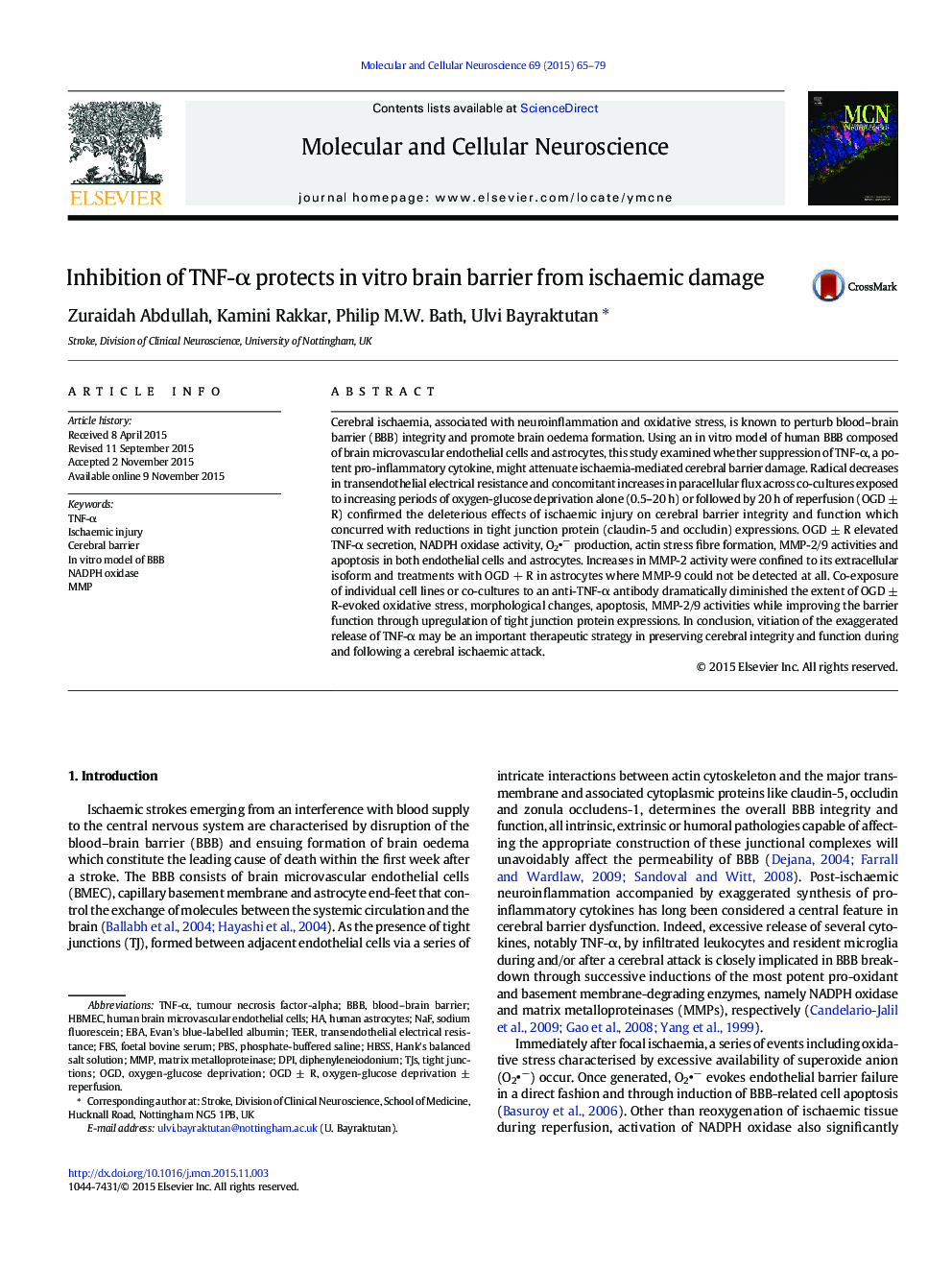| Article ID | Journal | Published Year | Pages | File Type |
|---|---|---|---|---|
| 2198438 | Molecular and Cellular Neuroscience | 2015 | 15 Pages |
•Oxygen-glucose deprivation ± reperfusion increased blood–brain barrier permeability.•Induction of ischaemia reperfusion injury elevated oxidative status and MMP activity.•Ischaemic injury evoked apoptosis of astrocytes and microvascular endothelial cells.•Inhibition of TNF-α release negated all the deleterious effects of ischaemic injury.•TNF-α may be a potential therapeutic target in restoring ischaemic BBB damage.
Cerebral ischaemia, associated with neuroinflammation and oxidative stress, is known to perturb blood–brain barrier (BBB) integrity and promote brain oedema formation. Using an in vitro model of human BBB composed of brain microvascular endothelial cells and astrocytes, this study examined whether suppression of TNF-α, a potent pro-inflammatory cytokine, might attenuate ischaemia-mediated cerebral barrier damage. Radical decreases in transendothelial electrical resistance and concomitant increases in paracellular flux across co-cultures exposed to increasing periods of oxygen-glucose deprivation alone (0.5–20 h) or followed by 20 h of reperfusion (OGD ± R) confirmed the deleterious effects of ischaemic injury on cerebral barrier integrity and function which concurred with reductions in tight junction protein (claudin-5 and occludin) expressions. OGD ± R elevated TNF-α secretion, NADPH oxidase activity, O2− production, actin stress fibre formation, MMP-2/9 activities and apoptosis in both endothelial cells and astrocytes. Increases in MMP-2 activity were confined to its extracellular isoform and treatments with OGD + R in astrocytes where MMP-9 could not be detected at all. Co-exposure of individual cell lines or co-cultures to an anti-TNF-α antibody dramatically diminished the extent of OGD ± R-evoked oxidative stress, morphological changes, apoptosis, MMP-2/9 activities while improving the barrier function through upregulation of tight junction protein expressions. In conclusion, vitiation of the exaggerated release of TNF-α may be an important therapeutic strategy in preserving cerebral integrity and function during and following a cerebral ischaemic attack.
